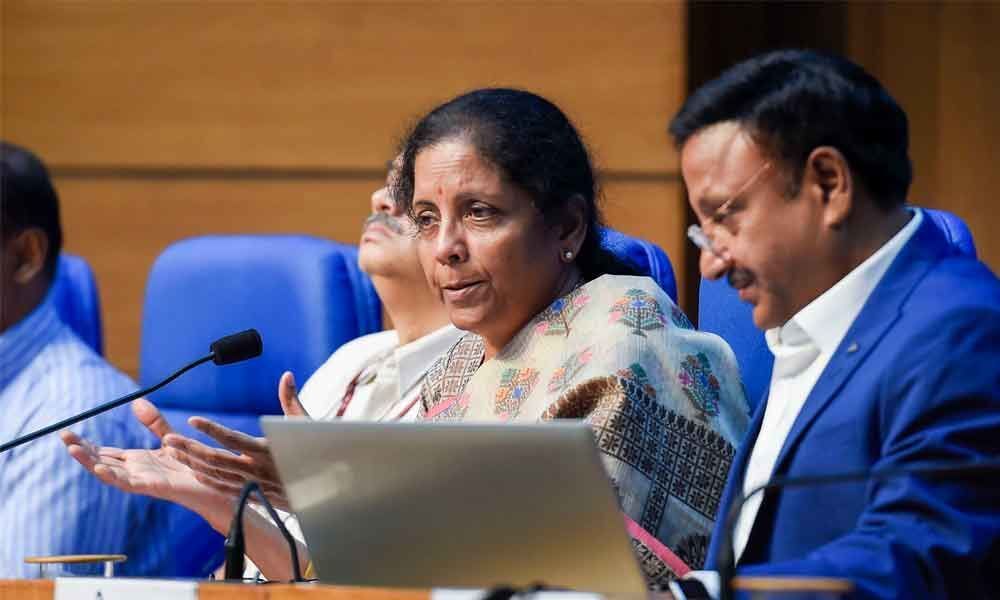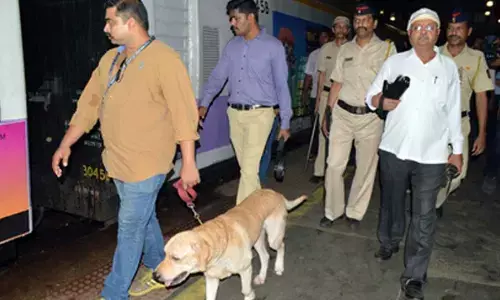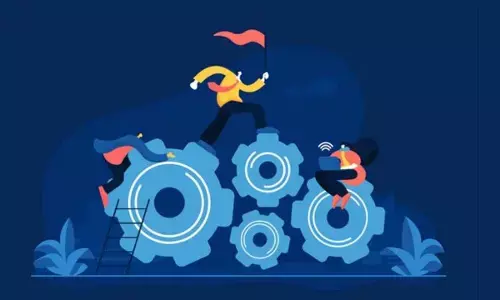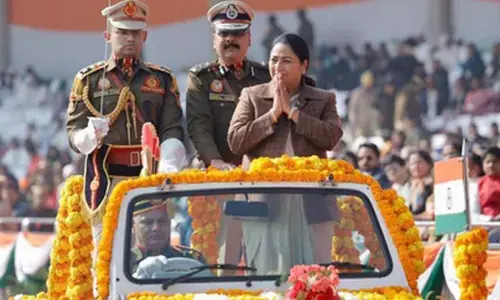10 PSBs merged into 4 banks

Govt assures no job cuts nor disruption in economy
New Delhi: Union Finance Minister Nirmala Sitharaman on Friday announced a series of mergers involving 10 state-owned banks on Friday, as the government moves to strengthen a sector struggling under a mountain of debt and ensure stronger balance sheets to boost lending and revive economic growth.
The mergers, which cut to 12 the total number of state-owned banks, from 27 in 2017, are the first since Prime Minister Narendra Modi's government won re-election in May.
The biggest merger is that of Punjab National Bank, Oriental Bank of Commerce and United Bank. The three banks together will merge to form India's second largest bank after the State Bank of India, with Rs 17.95 lakh crore business and 11,437 branches.
Nirmala Sitharaman also announced the merger of Canara Bank and Syndicate Bank; Union Bank of India, Andhra Bank and Corporation Bank; and Indian Bank and Allahabad Bank.
Merged with Allahabad Bank, the Indian Bank will be the seventh largest public sector bank with business of Rs 8.08 lakh crore, while Union Bank of India, with Andhra Bank and Corporation Bank shall become the fifth largest public sector bank now.
"We shall continue with two banks which will have national presence - Bank of India with Rs 9.3 lakh crore business size and Central Bank with Rs 4.68 lakh crore business size," Sitharaman said.
Banking Secretary Rajeev Kumar announced that there would be no retrenchment in any of the banks. "Rather employee benefits and human resource conditions will improve. Best practices will be followed. We will especially ensure that no employee is negatively affected because of this," he said.
Kumar also assured that the move would not cause disruption in economy. "This is exactly the right time for these consolidations. This will not cause any disruption because anchor banks will draw from their experience. The synergy will boost the economy and provide great stability."
The merger of Syndicate Bank with Canara Bank will create the fourth largest public sector bank with Rs 15.20 lakh crore business and a branch network of 10,324.
Andhra Bank and Corporation Bank's merger with Union Bank of India will create India's fifth largest public sector bank with Rs 14.59 lakh crore business and 9,609 branches.
The merger of Allahabad Bank with Indian Bank will create the seventh largest public sector bank with Rs 8.08 lakh crore business with strong branch networks in the south, north and east of the country, she said, adding that Bank of India and Central Bank of India will continue to operate as before.
Last year, the government had merged Dena Bank and Vijaya Bank with Bank of Baroda, creating the third-largest bank by loans in the country. After the mergers, the country will have 12 public sector banks, including State Bank of India and Bank of Baroda.
Also, Indian Overseas Bank, Uco Bank, Bank of Maharashtra and Punjab and Sind Bank, which have strong regional focus, will continue as separate entities.
The Finance Minister also unveiled governance reforms in public sector banks, saying their boards will be given autonomy and enabled to do succession planning.
Also, bank boards will be given flexibility to fix sitting fee of independent directors, she said, adding that non-official directors will perform role analogous to independent directors.
"To make management accountable to board, board committee of nationalised banks to appraise performance of general manager and above including managing director," she said.
Post consolidation, boards will be given flexibility to introduce chief general manager level as per business needs. They will also recruit chief risk officer at market-linked compensation to attract best talent.
Sitharaman had last week unveiled the first of three planned stimulus packages that included a reduction of taxes, improvement of liquidity in the banking sector (formal and shadow), increased government spending on auto and infrastructure, and accelerated refunds of goods and services tax (GST).
This was followed by liberalisation of foreign investment rules in four sectors including coal mining, contract manufacturing, single brand retail and digital media.
WHAT MAY CHANGE
♦ New cheque book and debit/credit cards will be issued
♦ Your account number and customer IDs, IFSC codes may change
♦ As a result, you will have to update IFSC and other details with the IT department, insurance providers, etc
♦ Fresh bank mandate will be needed for EMIs and systematic investment plans
♦ Fresh standing instructions for bill payments will have to be issued
♦ Your bank branch may move closer or farther
♦ Bank stationery will change
♦ Savings account interest rate may change
WHAT DOES NOT CHANGE
♦ Fixed deposit rates will remain unchanged for now
♦ If you are locked into a fixed deposit, you can continue till maturity on the same interest rate even if the deposit rates of the merged entity are higher or lower
♦ Loan rates will remain unchanged
♦ In case of MCLR-based loans, the interest would be reset at the end of the reset period selected by the borrower















